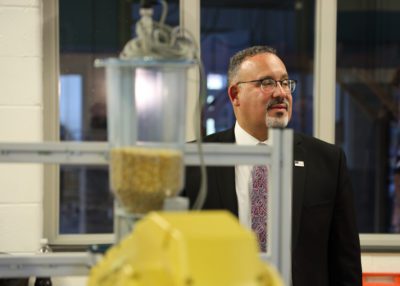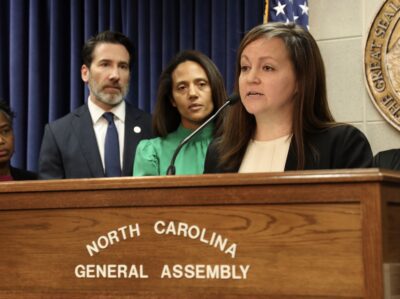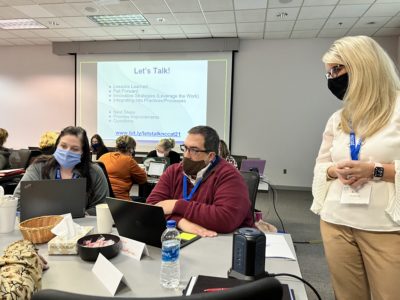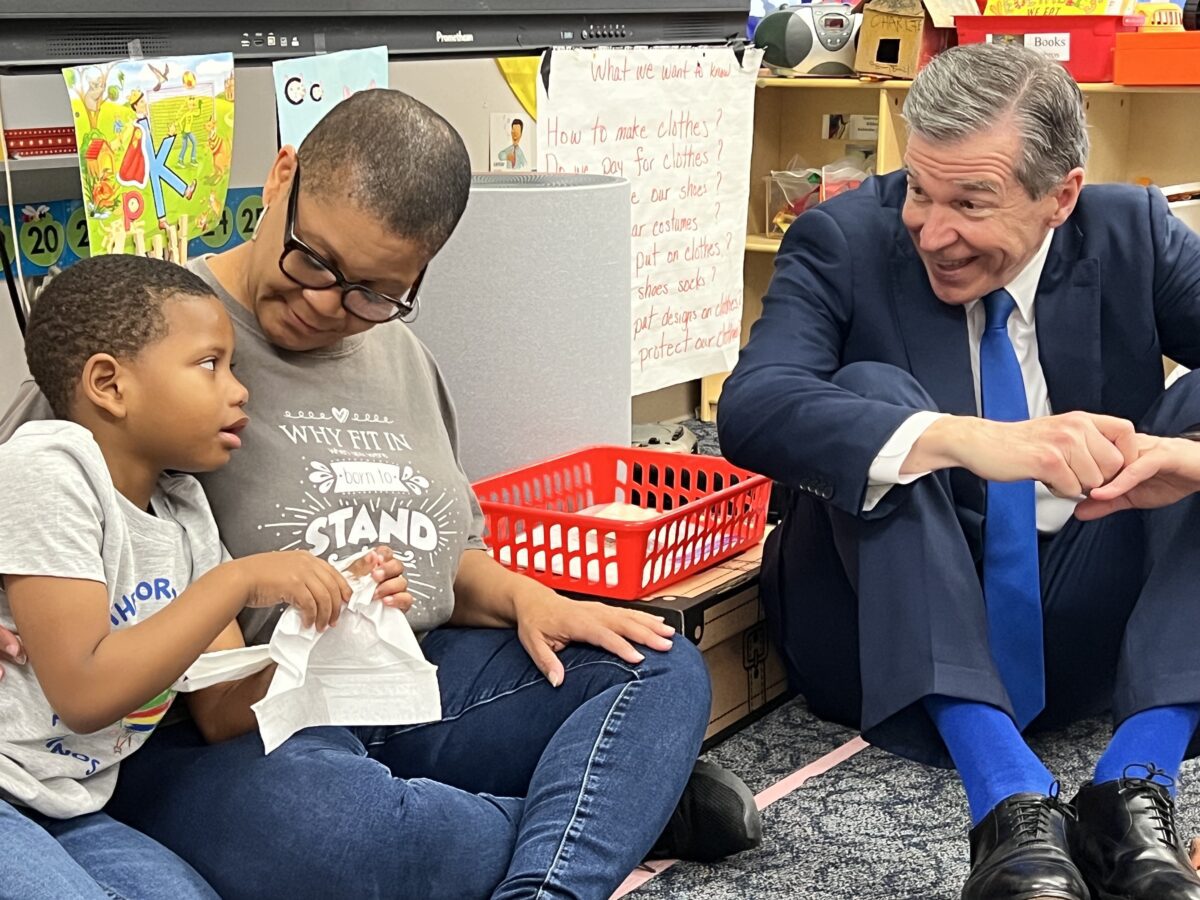

Share this story
|
|
Gov. Roy Cooper visited Wilburn Elementary School in Wake County on Tuesday for an early celebration of Read Across America Day, popping into some classrooms and sitting with a group of first graders to read Dr. Seuss’s “Hop on Pop.”
“Dad is sad – very, very sad,” he reads, then utters quietly, “another day without Medicaid expansion,” as adults in the room burst into laughter.
The kids are laughing, too – at pictures of characters sitting on cacti and at the rhyme of the words. They are transfixed as Cooper reads a book he used to read to his own children.
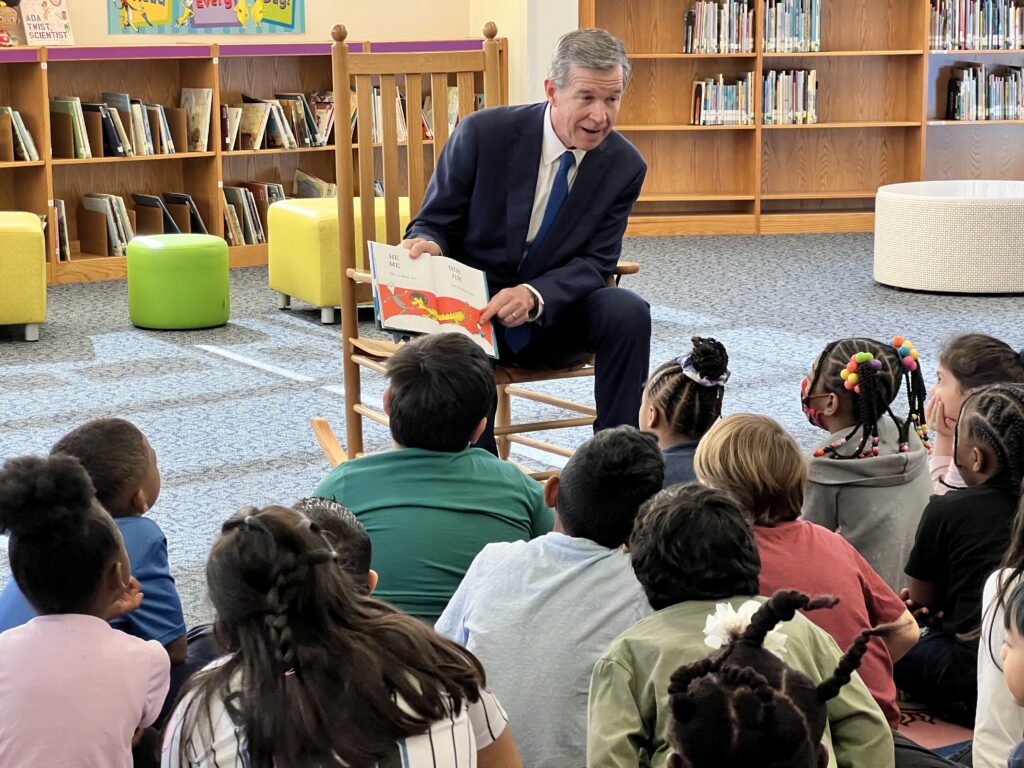

“When you think about how critical reading is for children and how important it is for those children to have those skills early in life so that they can be lifelong learners and have careers to support themselves and their family – it’s just absolutely critical,” Cooper said. “And the work that we’re doing and the investments that we’re making are beginning to pay off.”
The science and love of reading
This year’s reading celebration coincides with North Carolina’s first year implementing the Excellent Public Schools Act of 2021, a law requiring elementary literacy instruction be grounded in the science of reading.
Senate President Pro Tempore Phil Berger, R-Rockingham, introduced the law in February 2021 and Cooper signed it into law in April 2021. Since that time, the Department of Public Instruction (DPI) has helped every public school district and many charter schools engage in Language Essentials for Teachers of Reading and Spelling (LETRS) training.
DPI has also started to provide feedback to school districts on district intervention plans as well as on curriculum and instructional methods.
“Teachers across the state are working hard to help students become proficient readers by grounding their instruction in the science of reading,” State Superintendent Catherine Truitt said at the January State Board of Education meeting. “They deserve to be commended for taking on this often very difficult and demanding work of learning themselves how to teach differently.”
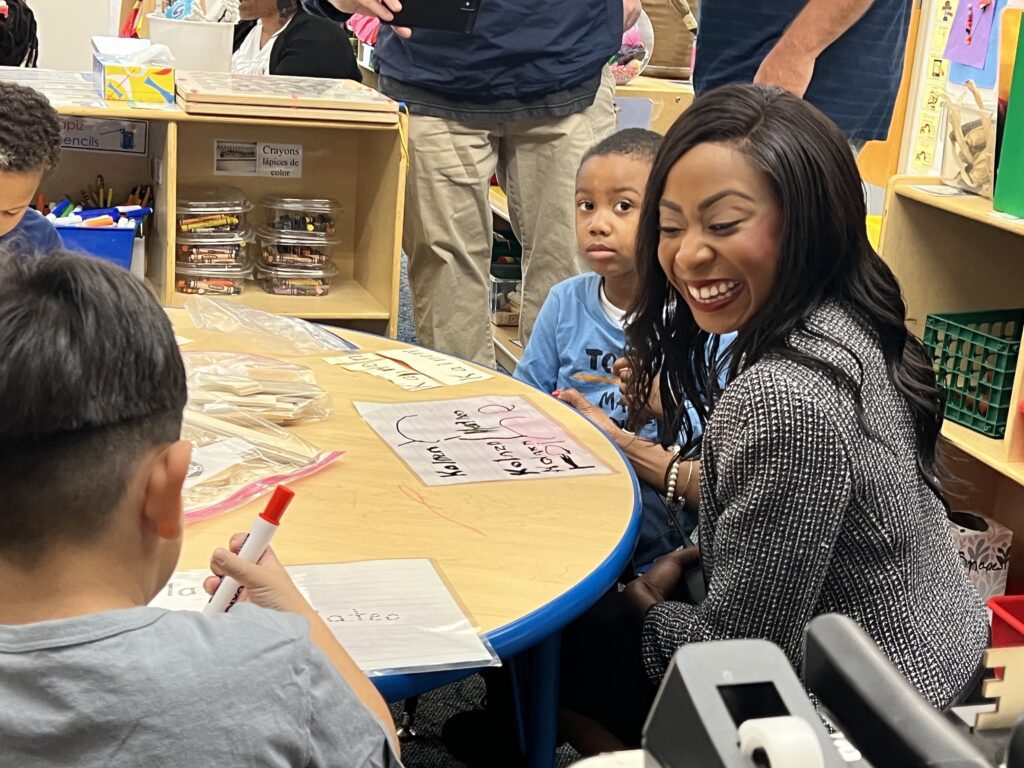

Early on, critics of the law worried that explicit, systematic decoding instruction could impede a child from developing a love of reading. Principal Dominique Teasley thinks the two can coexist.
“From LETRS to Letterland to EL Education – we have robust programs in place to teach reading skills,” Teasley said. “However, it’s when students are able to engage with texts that provide the opportunity to connect with the world around them that they explore those powerful learning experiences in our schools today… So thank you to our teachers for modeling excellence each and every day in your classroom, through the use of engaging and challenging texts to promote equity, diversity and curiosity.”
A reminder that there’s alternatives to book bans
For the educators at Wilburn, the day was an opportunity to promote inclusion and belonging through literature.
“Read Across America Week gives voice to students so that they can share diverse stories which lift up different perspectives, explore various interests, and spark deep conversations,” Teasley said.
The National Education Association created Read Across America Day in 1998. The day has a difficult past, beginning as a co-celebration of Dr. Seuss’s birthday. In recent years, however, the NEA has pivoted away from Seuss and toward celebrating “a nation of diverse readers” as attention has grown over racism and sexism in some of Seuss’s work.
Two years ago, a now-debunked rumor that a school district in Virginia banned Seuss’s books sparked outrage. But on Tuesday at Wilburn, Seuss was present. The media center displayed his books, alongside many diverse and culturally representative books. The Lorax adorned a hallway. Next to it, on a Truffala tree, a sign reminded young readers to celebrate diversity with books.
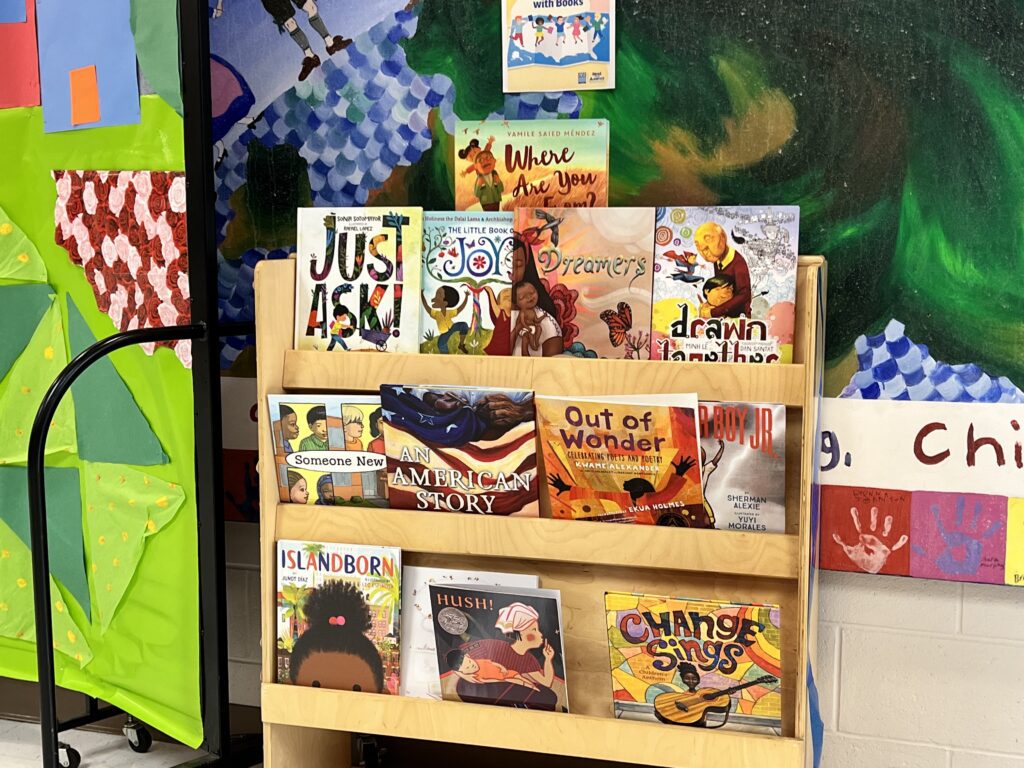

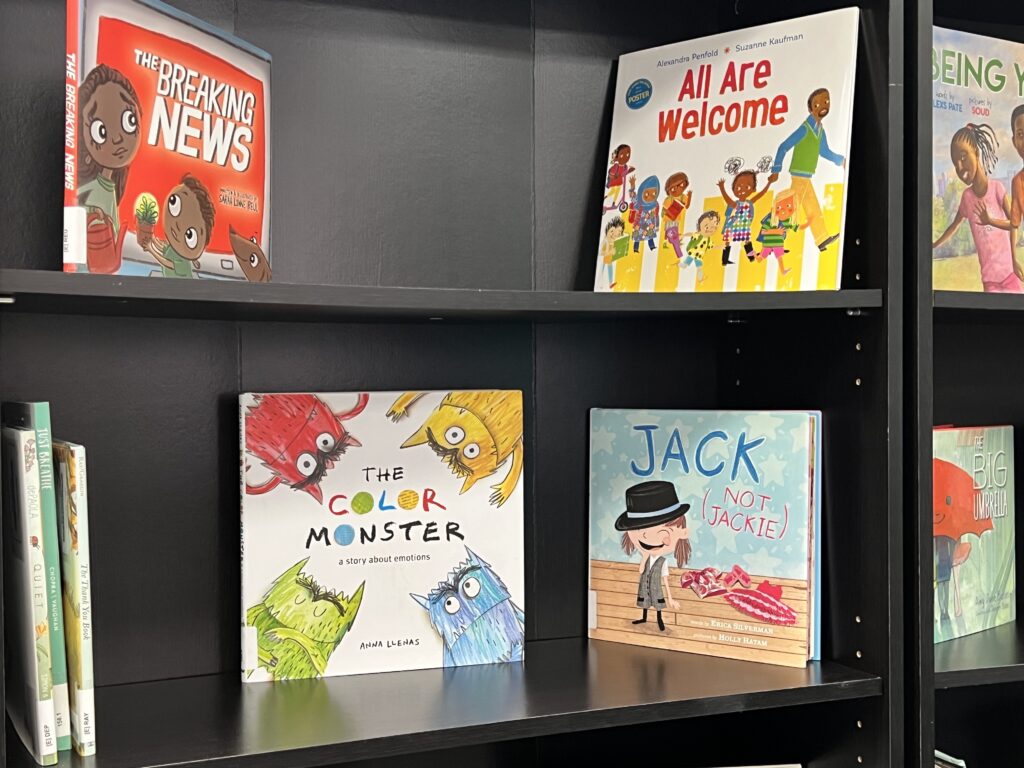

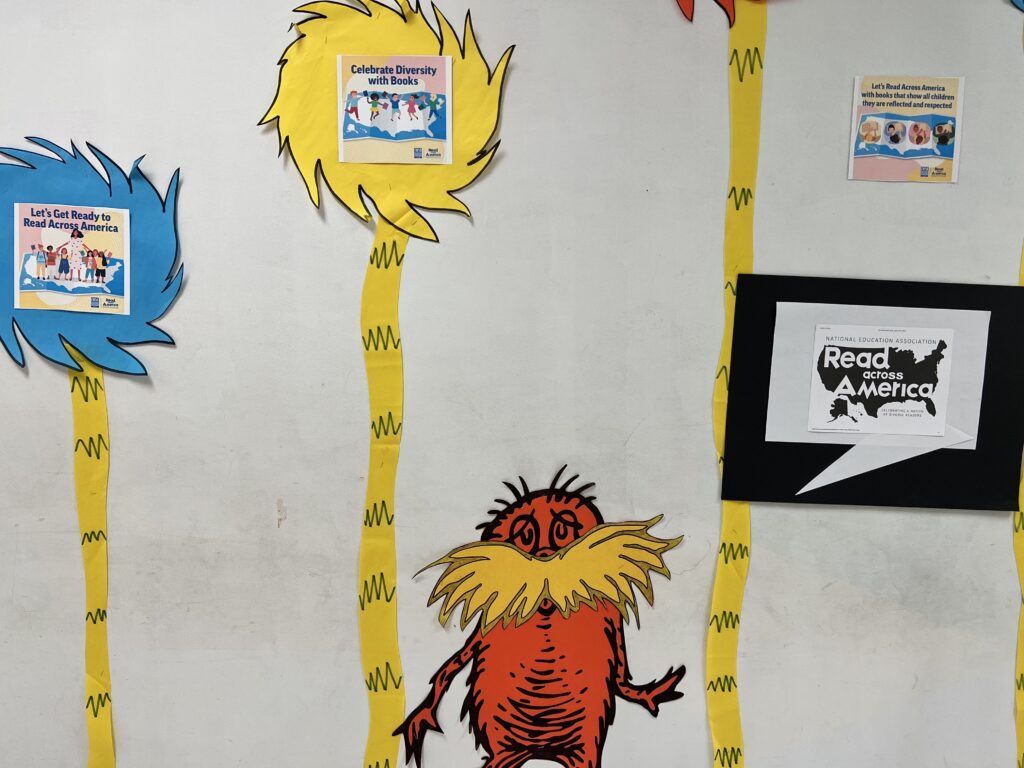

In light of a 2019 study that found some of Seuss’s work demeaned and dehumanized people of color, the school’s handling of the author stood in stark contrast to recent calls for banning books and the introduction of legislation that could limit discussion of topics that might cause discomfort.
Instead, the school addressed the issue head-on, by filling its shelves with diverse and inclusive book options and embracing discussion on diversity and inclusion.
“Books should be mirrors,” Teasley said, quoting author Kwame Alexander. “And we should find out about the people who are not like us, who are different than us, so we can find out about the similarities and the connections. So books should be windows, as well.”
Celebrating public schools and educators
After closing “Hop on Pop” and receiving love from the kids, Cooper told them about his teachers growing up. His teachers shaped his life, he said. Motioning to the first graders’ teachers, Cooper told the kids that their teachers care deeply about them.
“And I care about them,” he said.
“Whenever I come into a school like this, I just feel my spirits are lifted,” Cooper told those in attendance, which included State Board of Education member Amy White, Wake County Board of Education members, and Wake County commissioners.
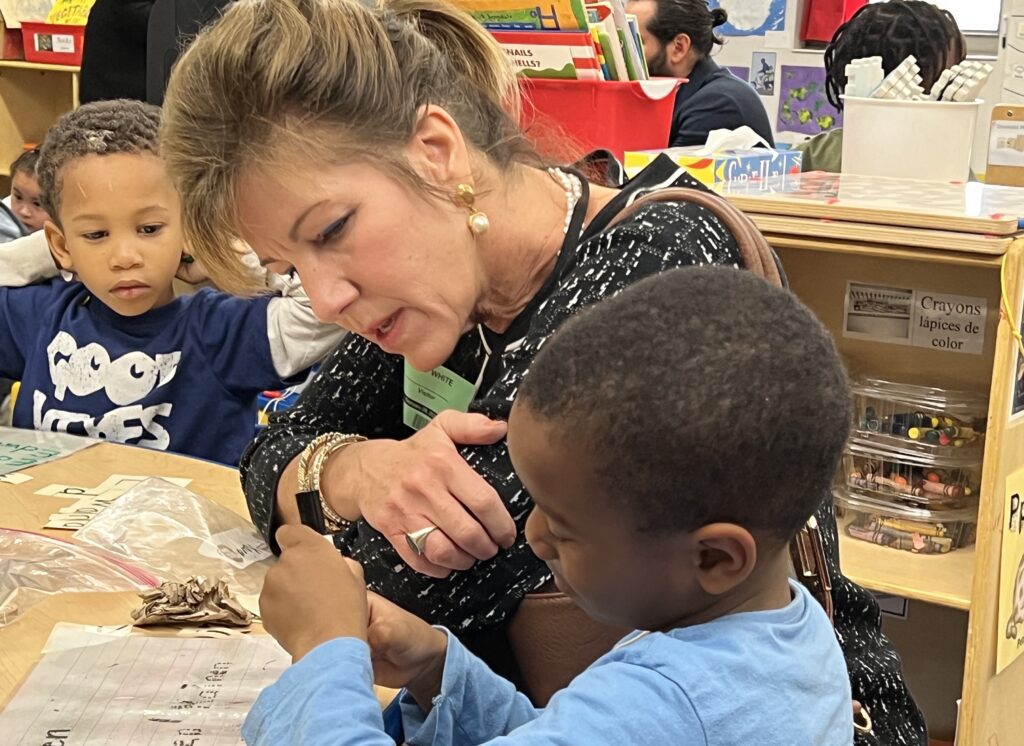

“And people who complain about public schools, I ask them to come and spend some time here,” he said. “Yes, we got work to do, but there are wonderful things happening and more and more connections being made and lives being shaped – like these first graders’ here.”



